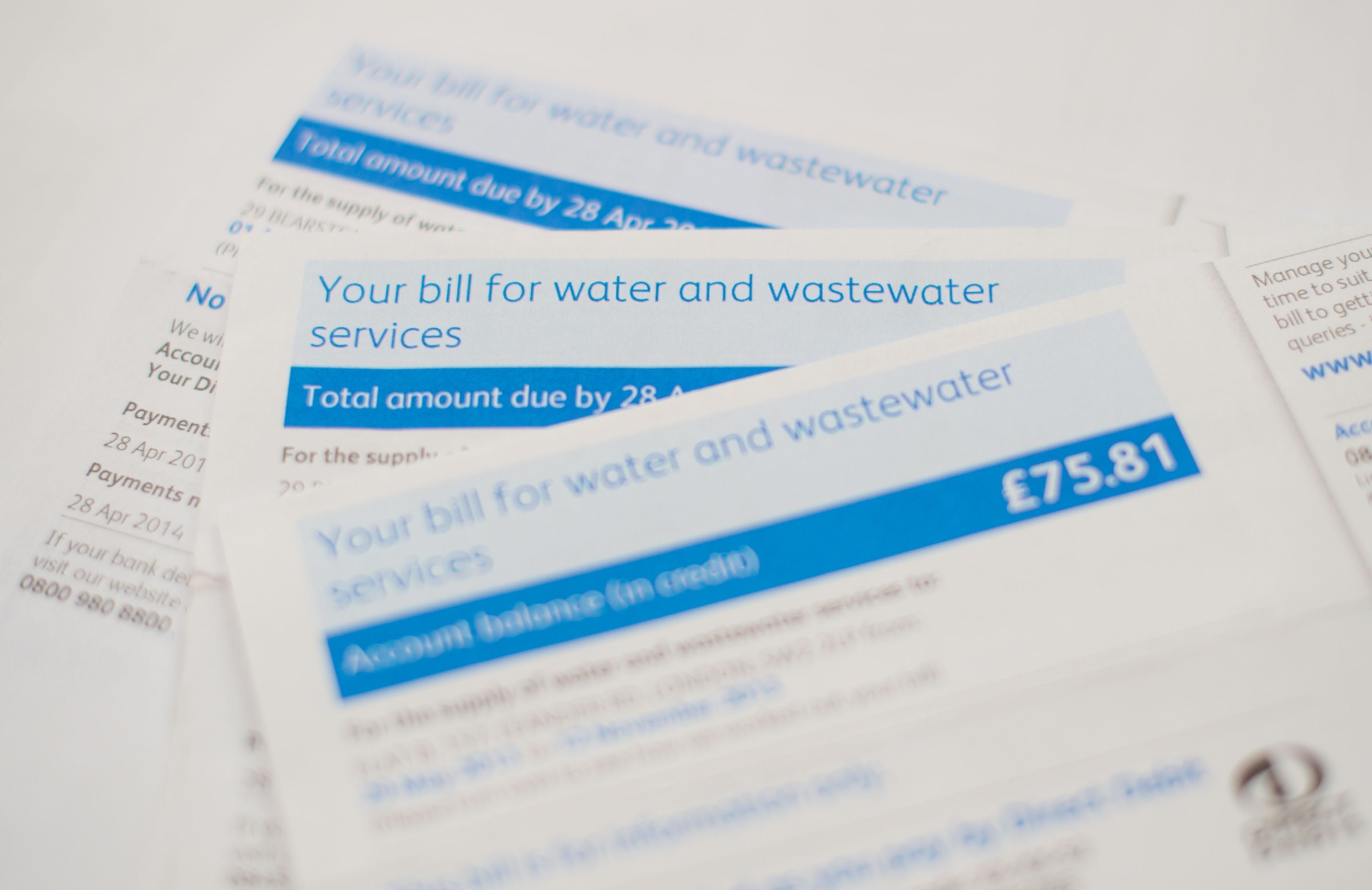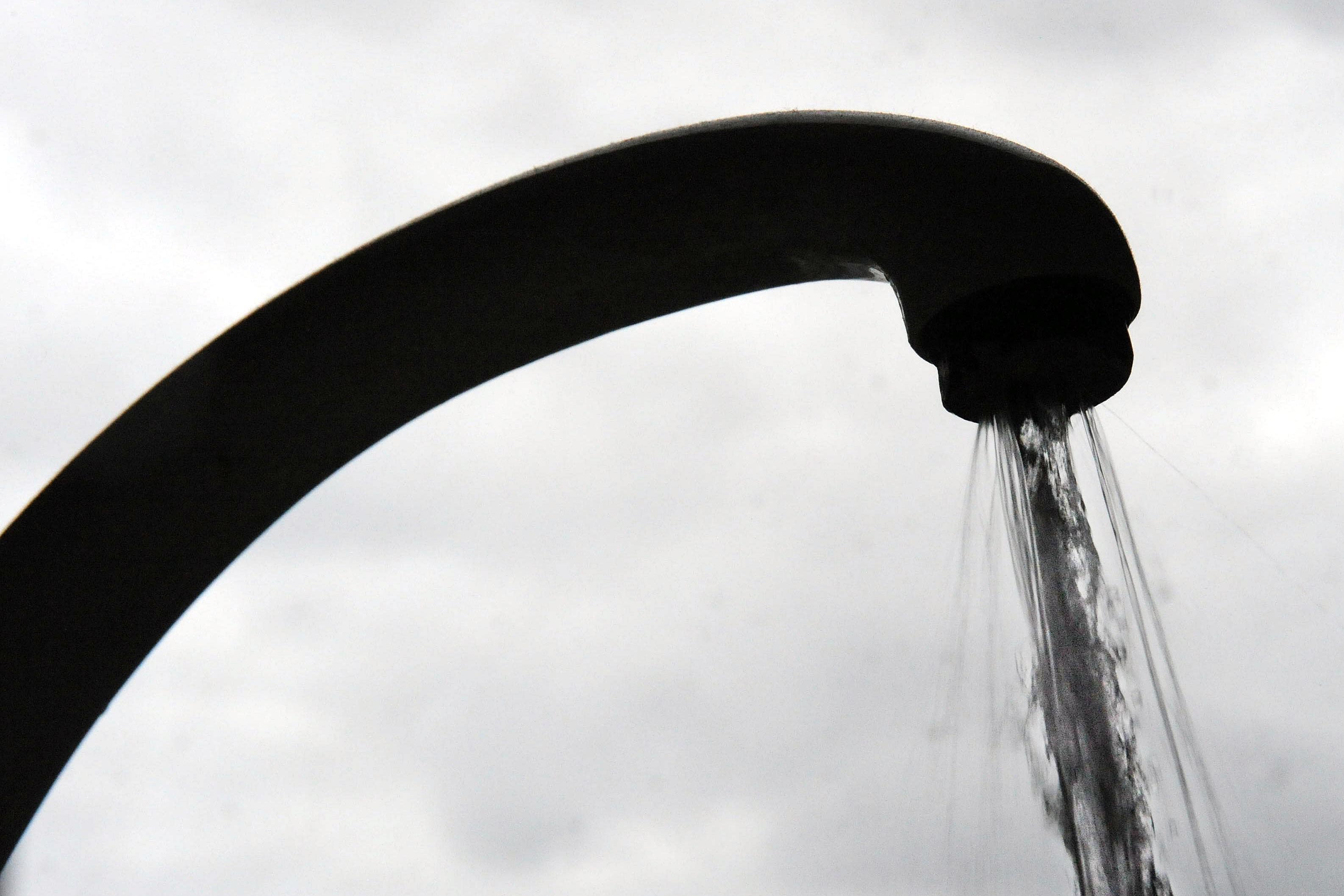Households face biggest hike in water bills in almost 20 years
The 7.5 per cent incease will see water bills rise to an average of £448 a year

Households in England and Wales will see the largest increase to their water bills in almost 20 years from April when they rise to an average £448 a year.
Industry body Water UK said the 7.5 per cent increase would see customers pay around £1.23 per day on average – an increase of 8p per day or an average £31 more on last year’s charges.
Consumer groups warned the rise could prove the tipping point for the one in five customers already struggling to pay.
But Water UK argued that water bills remained lower in real terms than they were a decade ago and said this year’s increase reflected higher energy costs, with water firms using around 2 poer cent of the nation’s electricity.
Firms were set to invest a further £70 billion to “eliminate harm” from storm overflows and increase water supplies by building new reservoirs and national water transfer schemes, it said, adding that they were “acutely aware of the impact of price rises on lower income and vulnerable customers” and had recently increased the level of support they offered by more than £200 million.
Water UK director of policy Stuart Colville said: “With an average increase of around 60p a week, most customers will again see a below-inflation increase in their water bill. However, we know that any increase is unwelcome, particularly at the moment.
“That is why companies are also releasing an extra £200 million to help those that may be struggling.
“Anyone with worries should contact their water company or go to supportontap.org for advice, and it’s worth remembering that water companies will never cut anyone off, or make them use a prepayment meter.
“Next year’s bills will support what is already the highest level of investment on record, with a further £70 billion set to be spent over coming years on building new reservoirs and ending overflows into rivers.”
The Consumer Council for Water (CCW) said regional variations and factors such as whether a customer is metered and how much water they use meant some households could face rises significantly above – or below – the average.
And it said the postcode lottery of social tariff schemes meant many customers who cannot afford their bill “slip through the net”.
CCW chief executive Emma Clancy said: “Water is essential for all of us so no-one should be worried about being able to afford their bill. These increases will bring more uncertainty to struggling households at a time when they can’t be certain they will get the help they need.
“Low-income households need immediate relief and the long-term security of knowing their water bill will be affordable.
“It’s not fair that struggling households face a postcode lottery when it comes to getting help with their bill – that’s why we urgently need a new water affordability scheme that provides consistent support based on people’s needs.”

Jess Cook, water poverty lead at National Energy Action (NEA), said: “Social tariffs are essential for low-income households. Discounted water bills for those struggling to pay can stop the most vulnerable from cutting back or running up debt when they can ill afford to do so.
“But the current postcode lottery means where you live affects what you pay and what support you receive, and the Secretary of State, Therese Coffey, has suggested that fixing this is not one of her top priorities.
“With water bills rising 7.5 per cent on average during this cost-of-living crisis, it’s more vital than ever that access to a social tariff should be made fairer, more consistent, and accessible to everyone who needs it, regardless of where they live.”
Ofwat chief executive David Black said: “We know times are tough and customers who are already struggling will be worried if they see their water bill increase, so companies should be doubling down to support those who need a helping hand.
“Kind words don’t mean anything unless they are backed up by action, which is why we were pleased to see the recent increase in support.”
It comes as new figures suggest 2.3 million UK households missed an essential payment last month, up from 1.9 million in December.
However the figure for January – when missed payments for mortgage, rent, loans, credit cards and other bills typically peak – is similar to those from the past two years, according to the Which? Consumer Insight Tracker.
The monthly poll of approximately 2,000 people found that six in 10 (59 per cent) made at least one financial adjustment such as cutting back on essentials, selling items, or dipping into savings in the last month to cover essential spending – a significant increase on the 49 per cent last January. However it is lower than the peak of 65 per cent who made adjustments in September.
The number of households cutting back on essentials such as utility bills, housing costs, groceries, school supplies and medicines has increased by 11 percentage points from three in 10 (27 per cent) last January to four in 10 (38 per cent) this January.






Join our commenting forum
Join thought-provoking conversations, follow other Independent readers and see their replies
Comments